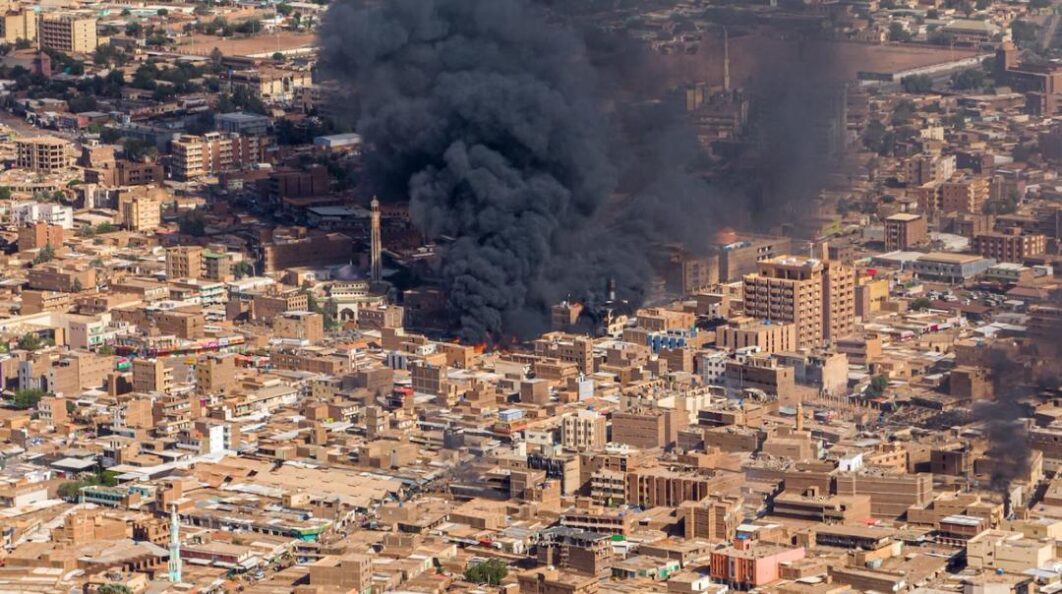
Since the outbreak of war in Sudan in April 2023 between the Sudanese Armed Forces (SAF), led by General Abdel Fattah al-Burhan, and the Rapid Support Forces (RSF), commanded by Mohamed Hamdan Dagalo (Hemedti), the country has descended into a brutal battleground marked by widespread atrocities against civilians. In Al-Jazirah State, particularly in the city of Wad Madani, documented reports have emerged detailing ethnic purges and war crimes following the military’s takeover—carried out in collaboration with extremist Islamist militias such as the Al-Baraa bin Malik Battalion and Sudan Shield Forces.
These violations not only underscore the savagery of the conflict but also raise alarm over its broader regional implications, particularly in terms of Africa’s stability.
The Military and the Legacy of Islamist Extremism
Historically, the Sudanese military has maintained deep ties with hardline Islamist movements, dating back to the 1989 coup led by Omar al-Bashir with the backing of the National Islamic Front. Under Bashir’s rule, the army underwent systematic “Islamization,” whereby dissenting officers were either purged or executed, while Islamist influence was consolidated within its ranks. According to a 2019 report by the Carnegie Middle East Center, “the military was reshaped into a stronghold of Islamist ideology, leaving it vulnerable to extremist sway even after Bashir’s fall.”
This legacy persisted following the 2019 revolution, as the military aligned itself with factions such as the Al-Baraa bin Malik Battalion—previously affiliated with the Popular Defense Forces (PDF) under Bashir—and Sudan Shield Forces, a coalition of tribal and Islamist hardliners.
Atrocities in Al-Jazirah and Wad Madani
On January 11, 2025, the Sudanese Armed Forces reclaimed control of Wad Madani, the capital of Al-Jazirah State, following fierce battles with the RSF. However, this so-called “victory” swiftly descended into a wave of horrific ethnic violence. According to a Washington Post report published on January 18, 2025, “video footage has documented soldiers throwing a man off the Hantoub Bridge near Wad Madani with a rope tied around his mouth, while others were filmed slaughtering a captive with a knife.” The perpetrators were identified as members of the Al-Baraa bin Malik Battalion and intelligence units allied with the military.
Ethnic Purges
These attacks primarily targeted residents of the “Kanaib” camps—informal settlements housing displaced non-Arab populations from Darfur, the Nuba Mountains, and South Sudan. A January 2025 United Nations report stated, “the military assaultedKanaib residents based on alleged affiliations with the RSF,” resulting in dozens of deaths. Meanwhile, eyewitnesses in Wad Madani told Human Rights Watch that Sudan Shield Forces, led by Abu Aqila Kikil, launched an assault on the village of Kombo Tayba on January 10, 2025, killing 26 civilians while hurling racial slurs such as ‘slave’ at their victims.
Indiscriminate Bombardment
The military has employed widespread aerial bombardment across Al-Jazirah, obliterating residential neighborhoods. A Doctors Without Borders report documented an airstrike on a crowded market in Khartoum, a pattern that was also replicated in Wad Madani. According to Reuters on January 14, 2025, “11 civilians were killed in air raids by the military following the city’s recapture.”
The Role of Islamist Militias
The Al-Baraa bin Malik Battalion, operating primarily in Khartoum but expanding its reach into Al-Jazirah, has gained notoriety among locals for its support of the military, though it stands accused of war crimes. A February 2025 Human Rights Watch report confirmed that the battalion “targeted civilians during the military’s offensive in Al-Jazirah.” Meanwhile, the Conflict Information Resistance Center (CIR) obtained footage showing battalion fighters executing a man by gunfire after throwing him off the Hantoub Bridge.
As for the Sudan Shield Forces, the Youth Civil Monitoring Network stated on March 1, 2025, that they “hold decisive power over the war’s continuation in support of the military’s Islamist agenda.”
The Consequences of War and Widespread Abuses: Humanitarian Catastrophe
The ongoing atrocities have triggered mass displacement and an escalating humanitarian crisis. According to UN reports, “25 million Sudanese are suffering from severe food shortages, with 12 million displaced,” while a January 2025and International Rescue Committee report warned that “222,000 children face imminent starvation.”
The Rise of Islamist Extremism
The military’s alliance with factions such as the Al-Baraa bin Malik Battalion has raised concerns over the potential exportation of Islamist extremism across the region. A recent International Crisis Group report cautioned that “Sudan’s fragmentation could spark cross-border ethnic and religious conflicts.”
Iranian and Turkish military support for Sudan, including the provision of drones and military advisors, has further reinforced this trajectory, potentially emboldening extremist groups like Boko Haram in Westd Africa to draw inspiration from Sudan’s unfolding crisis.
Nigeria, which sharedeep historical and ethnic ties with Sudan through the Hausa communities—many of whom migrated to Sudan and are involved in ethnic clashes in Blue Nile State—may feel the ripple effects. According to Wikipedia (article: Blue Nile Clashes), “tensions between the Hausa and other ethnic groups escalated between 2022 and 2023,” highlighting dynamics that could extend into Nigeria.
In March 2025, the International Crisis Group reported that “the growing Islamist influence in Sudan could serve as a catalyst for groups like Boko Haram, exploiting the chaos to recruit fighters and expand operations in the Sahel.” Additionally, the influx of Sudanese refugees into neighboring states is likely to exacerbate Nigeria’s existing internal crises.
Sudan on the Brink of Regional Chaos
The atrocities in Al-Jazirah and Wad Madani underscore a disturbing reality: the Sudanese military, with backing from extremist militias like the Al-Baraa bin Malik Battalion and Sudan Shield Forces, appears to be orchestrating an ethnic cleansing campaign to cement its dominance. These war crimes not only threaten Sudan’s stability but risk fueling Islamist extremism across Africa, with immediate consequences for nations such as Nigeria. Urgent international intervention is imperative to halt the violence and hold perpetrators accountable—before Sudan descends irreversibly into regional anarchy.






